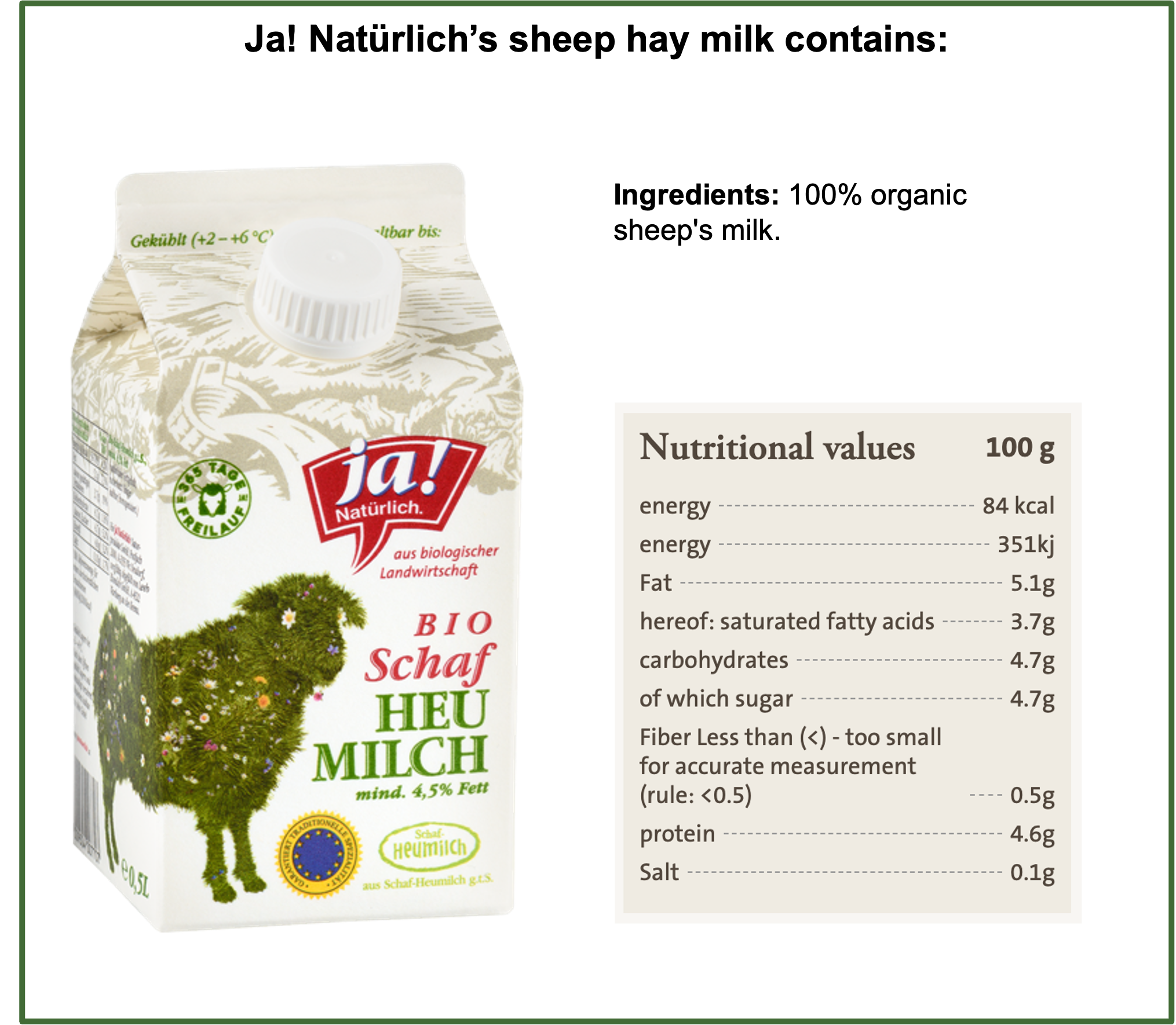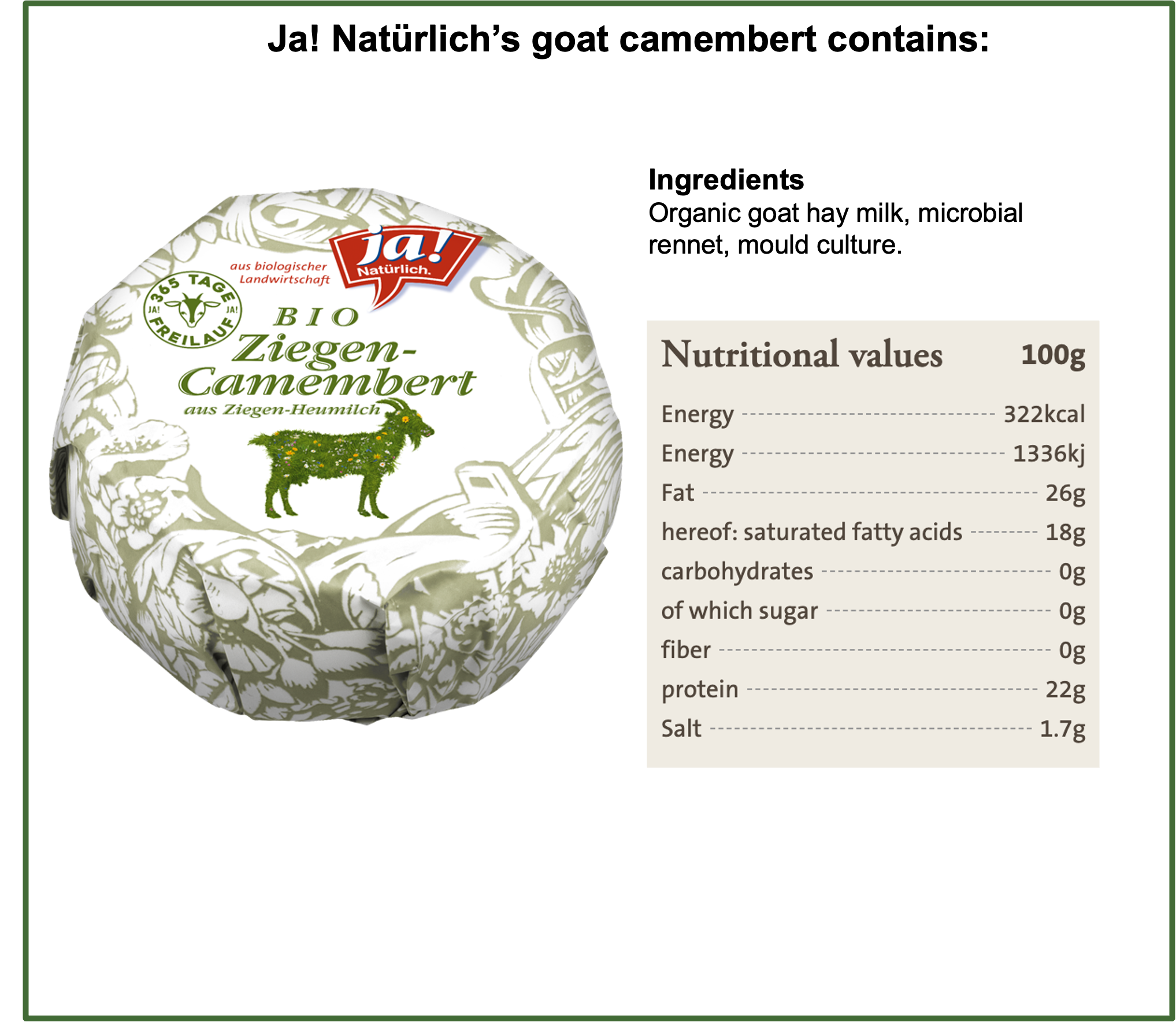The “grass-fed” claim is gaining traction in the animal protein category, giving consumers ‘permission to indulge’ by connecting to their desire for products that are good for them, but also the planet. During a recent trip to Vienna, we spotted a variation of grass-fed dairy in the supermarket: hay milk.
Popular in Austria and Germany, hay milk (“heumilch” in German) refers to a traditional type of milk that comes from cows that are fed a diet consisting of fresh grass in the spring/summer and hay in the winter. Any silage or other fermented fodder is prohibited, but some types of bran and high-mineral pellets are allowed. The idea is to promote a more traditional and natural feeding regimen for cows, as opposed to the concentrated feeds, grains, or other supplemental foods often found in regular dairy cow farms.
The result is a milk whose flavour profile varies slightly by the season, and whose omega-3 content is said to be higher than that of regular milk.
In Austria, one of the biggest brands to offer this is Ja! Natürlich with its range of 25+ organic products based on hay milk from cows, sheep or goats. Promoted with words like “roaming free 24 hours per day 365 days per year” and “organic feed from Austria”, the products are premium priced with one litre of cow’s hay milk costing €1.79 compared to €1.29 for regular milk and €1.59 for organic milk.
The term hay milk is protected since 2016 and the concept has been granted permission to use the coveted EU-wide Traditional Speciality Guaranteed (TSG) label which provides a protection regime for traditional food products of specific character.


Grass-fed is a term that for a growing number of consumers means "healthier for the cows, healthier for the plant, healthier for me." It brings together sustainability and health and unsurprisingly demand for products labelled grass-fed is growing worldwide. Learn more in 10 Key Trends 2024: https://www.new-nutrition.com/keytrend?id=304

